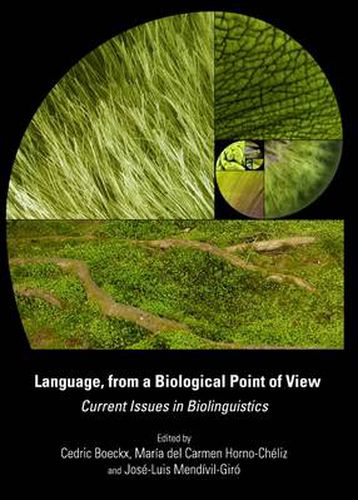Readings Newsletter
Become a Readings Member to make your shopping experience even easier.
Sign in or sign up for free!
You’re not far away from qualifying for FREE standard shipping within Australia
You’ve qualified for FREE standard shipping within Australia
The cart is loading…






The present volume offers a collection of essays covering a broad range of areas where currently a rapprochement between linguistics and biology is actively being sought. Following a certain tradition, we call this attempt at a synthesis biolinguistics. The nine chapters (grouped into three parts: Language and Cognition, Language and the Brain, and Language and the Species) offer a comprehensive overview of issues at the forefront of biolinguistic research, such as language structure; language development; linguistic change and variation; language disorders and language processing; the cognitive, neural and genetic basis of linguistic knowledge; or the evolution of the Faculty of Language. Each contribution highlights exciting prospects for the field, but they also point to significant obstacles along the way. The main conclusion is that the age of theoretical exclusivity in Linguistics, much like the age of theoretical specificity, will have to end if interdisciplinarity is to reign and if biolinguistics is to flourish.
$9.00 standard shipping within Australia
FREE standard shipping within Australia for orders over $100.00
Express & International shipping calculated at checkout
The present volume offers a collection of essays covering a broad range of areas where currently a rapprochement between linguistics and biology is actively being sought. Following a certain tradition, we call this attempt at a synthesis biolinguistics. The nine chapters (grouped into three parts: Language and Cognition, Language and the Brain, and Language and the Species) offer a comprehensive overview of issues at the forefront of biolinguistic research, such as language structure; language development; linguistic change and variation; language disorders and language processing; the cognitive, neural and genetic basis of linguistic knowledge; or the evolution of the Faculty of Language. Each contribution highlights exciting prospects for the field, but they also point to significant obstacles along the way. The main conclusion is that the age of theoretical exclusivity in Linguistics, much like the age of theoretical specificity, will have to end if interdisciplinarity is to reign and if biolinguistics is to flourish.